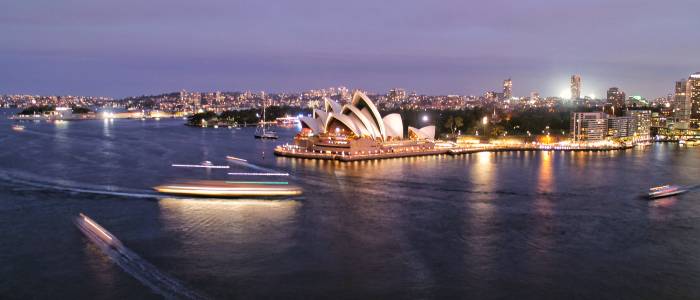
When traveling to Australia, it's essential to be aware of the customs regulations and the necessary documentation required upon arrival other than an Australian visa.
This article provides a comprehensive overview of the Incoming Passenger Card (IPC) for Australia and the customs regulations that you should be familiar with before entering the country.
What is the Incoming Passenger Card IPC?
The Incoming Passenger Card for Australia is a document that passengers arriving in Australia must complete. It serves as a means of identifying the traveler and provides an effective record of a person's entry into the country.
It also serves as a declaration in relation to health and character requirements for non-Australian citizens, as well as a customs declaration form for Australia.
Additionally, an Australian declaration form functions as a Special Category Visa application form for citizens of New Zealand, and a visa application for Permanent Residents of Norfolk Island.
The IPC is provided to travelers either on board their flight or ship before arrival or by the Australian Border Force in the arrival terminal.
However, Australia is planning to introduce a Digital Passenger Declaration in the near future. This saves you the need to complete a paper form, as you fill it out online in advance of travel. You will simply need to show the completed form on your digital device.
Who needs to complete an Incoming Passenger Card?
Most passengers, including Australian citizens, are required to complete and present the Incoming Passenger Card for Australia when entering the country.
An IPC can be filled out for another traveler if someone is responsible for that individual. This applies to parents or guardians of underage individuals and caregivers of travelers with specific requirements.
If someone else fills out an Australian declaration form for a non-Australian citizen, it's deemed as if the non-Australian citizen has completed it themselves.
The IPC does not function as a visa, except for New Zealand citizens or Norfolk Island Permanent Residents.
All other foreign citizens must also have an approved Australian visa to enter the country. Most visitors are eligible to obtain either an eVisitor visa or an ETA for Australia online.
Information requested on the IPC
The IPC requires you to provide the following information:
- Family/surname, given names, and passport number.
- Flight number or name of the ship.
- Intended address in Australia.
- Whether you intend to live in Australia for the next 12 months.
- Declarations related to customs and quarantine.
- The country in which you boarded the flight/vessel.
- Date of birth, usual occupation, and nationality as shown on your passport.
- Contact details in Australia and emergency contact details.
You must also sign and date the ICP. Additionally, you need to answer questions concerning your migration status, health status, and any prior criminal convictions.
What do I need to declare at Australian customs?
Here's a list of items that you need to declare on a ICP:
- Items that are banned or restricted, such as certain medications, steroids, unlawful explicit content, firearms, weapons, or illegal drugs.
- Purchases made abroad or from duty/tax-free shops in Australia exceeding AUD $900 for adults (18 and above) and AUD $450 for children. This total includes gifts.
- Alcoholic beverages: A maximum of 2.25 litres (like liquor, wine, or Champagne) for each adult.
- Tobacco products: Up to 25 cigarettes or an equivalent of 25 grams (0.88 ounces) of non-smoking tobacco items for each adult.
- Commercial or business-related goods or samples.
- Cash amounts equal to or exceeding AUD$10,000, whether in Australian or foreign currency.
- Food items such as meat, poultry, seafood, eggs, dairy products, fruits, and vegetables.
- Plant materials, encompassing grains, seeds, nuts, bulbs, straw, wood, and traditional medicinal herbs.
- Animal-related items, which include pets, specimens, birds, fish, insects, shells, bee by-products, and pet food.
- Any items containing soil or used in freshwater settings, like sports equipment, recreational gear, or footwear.
Some items cannot be brought into Australia, while others may require permission. It's crucial to be aware of these entry requirements to avoid potential penalties.
What happens if I don’t declare at customs in Australia?
Failure to declare items that are subject to customs in Australia can result in severe consequences. This may include fines, confiscation of the undeclared items, and in extreme cases, legal action.
Additionally, providing false information, especially if you are a non-Australian citizen, can adversely affect your visa status.
List of prohibited items to declare at Australian customs
Australia has stringent biosecurity measures in place to prevent the introduction of harmful pests, diseases, and objects.
Therefore, some of the items you need to list on your custom declaration form for Australia will be confiscated or destroyed if found in your luggage.
These include:
Weapons
- Automatic Knives
- Pepper spray
- Electric shock devices
- Extendable batons
Food and Drink
- Food and drink from your flight
- Fresh fruit and vegetables
- Uncanned meats such as bacon, sausages, etc.
Flora and Fauna
- Cats and dogs
- Pet Birds, horses, aquarium fish
- Exotic animals
- Live plants
If you're unsure about whether to list a particular item on a custom declaration form for Australia, it's always safer to do so. Non-declaration can lead to fines and other penalties.


